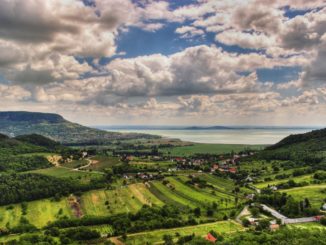
Last week’s damning report on CAP and biodiversity was a wake-up call. But will the Green Deal Commission go back to sleep? The European Court of Auditors insists CAP must deliver more in the 2030 biodiversity strategy. Civil society organizations are now watching closely to see the Commission doesn’t hit snooze and sink back into business as usual. Louise Kelleher takes us through the reactions.
We don’t know the exact impact of the €66 billion spent on farmland biodiversity in the 2014-2020 CAP. That’s because the Commission doesn’t have the data. We do know however that throwing billions at biodiversity loss hasn’t solved the problem. In a report released last week, the European Court of Auditors slammed CAP’s performance on biodiversity, and urged the Commission to do better in its new biodiversity strategy.
The Commission reassures us that things will be different this time. CAP is perfectly compatible with the Green Deal. Just look at our shiny new Farm to Fork strategy! And our biodiversity strategy (the focus of the auditors’ recommendations).
Taking to social media to thank the auditors for the report, the Commission name-checked the targets set under the European Green Deal. We want high-diversity landscape features on 10% of farmed land, it reminded us. We’re planning to make 25% of farmland organic, and to halve pesticide use. And we’ll make sure member states stay in line with national biodiversity commitments that are on par with the Green Deal targets – that’s what the national CAP Strategic Plans are for, after all.
Read the Commission’s technical remarks on the report here.
No Surprises
The auditors’ report came as no surprise to the Institute for European Environmental Policy (IEEP). In fact it corroborates the findings of a study that IEEP did earlier this year at the request of the Commission. When asked to evaluate the impact of CAP on biodiversity, IEEP was similarly stymied by the lack of suitable monitoring data.
Reacting to the auditors’ report with measured language, IEEP noted that “reliable indicators” are “important” in monitoring the impact of biodiversity spending.
While acknowledging the “critical” role that targeted agri-environment schemes can play, IEEP agrees that member states could be doing more with CAP to protect semi-natural habitats, instead of funding measures that do little for biodiversity. It echoed the auditors’ call for more accurate tracking of spending.
The auditors’ findings add to the evidence base supporting a 10% target on high-diversity landscape features in the EU’s 2030 biodiversity strategy, noted the IEEP.
Separately, Erik Gerritsen, a co-author of the IEEP study, warned against completely dismissing the impact of CAP funding. “Evidence shows CAP investment has been key in some places. Writing it off completely would be a mistake,” he commented in a personal capacity. “Especially rural development funding (EAFRD), in cases where agri-environment schemes and -investments were well-targeted, has protected key semi-natural habitats and species. This should be recognized when integrating nature investment needs in upcoming CAP planning cycle!” he tweeted.
More Munition
BirdLife Europe also found it “unsurprising” that CAP hasn’t delivered on biodiversity.
“This report clearly shows the path the EU must take to stop the destruction of nature in Europe – stand up to the intensive farm lobby, end harmful CAP subsidies and put real money for biodiversity on the table in the EU Budget.” – Harriet Bradley, EU Agriculture Policy Officer, BirdLife Europe
BirdLife Europe, among others, will be keeping a watchful eye on the European Parliament and Agriculture Council as they make amendments to the Commission’s Green Deal proposals. It’s concerned that the environment aspects of the Green Deal may yet be watered down.
WWF Europe commented that, despite wishful thinking on the part of the Commission, the new report shows that CAP “has failed to stop destruction of biodiversity” by intensive agriculture. The message is clear: “CAP needs a complete overhaul!”
Andreas Baumuller, Head of Natural Resources at WWF European Policy Office, also took to Twitter in the wake of the report’s release. It is “unacceptable” that “after decades of spending” CAP is still not delivering on biodiversity. Commenting from his personal account, Baumuller described the auditors’ report as “more munition” to bring CAP into line with the European Green Deal and the 2030 biodiversity strategy.
IFOAM took heart from the audit’s endorsement of organic farming. It shared the findings in a tweet: “whereas most CAP funding has little positive impact on biodiversity, organic farming, agri-environment-climate and Natura 2000 have the most potential to maintain or enhance biodiversity: they should be the priorities of the Future of CAP.”
Act Now
The fact that CAP spending has failed to halt biodiversity loss was not news for many commentators. But the auditors’ findings lend new urgency to the issue at a critical time.
“EU decision-makers must act now,” said Slow Food Europe. In the new CAP, it wants to see agricultural subsidies and Farm to Fork “work together to tackle the biodiversity crisis”.
French MEP Manuel Bompard (GUI-NGL) commented that the finding was “no surprise”. He pointed out that CAP finances one of the main causes of biodiversity loss – intensive agriculture. “The EU can’t ignore it any longer: CAP must change,” tweeted Bompard in French.
Member States can expect Meddling
Member states take heed, noted Anne Maréchal, Senior Policy Analyst at IEEP and a co-author of the IEEP study on CAP and biodiversity. Tweeting in a personal capacity, she predicted that member states’ CAP Strategic Plans will be “particularly scrutinized” for alignment with the Biodiversity Strategy.
Ministers won’t be happy to receive recommendations from the Commission for their CAP strategic plans, mused Jabier Ruiz, Senior Policy Officer for Agriculture and Sustainable Food Systems at WWF Europe. Nonetheless “I think that – given their track record of “racing to the bottom – this is the bare minimum the Commission must do,” said Ruiz in a tweet from his personal account.
“Political and Ideological”
Not everyone was happy with the auditors’ findings. German MEP Lins Norbert (EPP), who is chair of the AGRI committee, criticised the report as “political” and “ideological”. He claimed it “does not take into account current negotiations and progress already made”. In a tweet he alluded to “other causes” of biodiversity loss such as urbanization and construction, which he insisted “should also be addressed”.
MEP Norbert’s hotheaded response is a reminder of the underlying tensions between CAP and the European Green Deal. Before veering off script, he reeled off platitudes about agriculture “showing its willingness to adapt and contribute more to biodiversity.” Negotiations between the AGRI and ENVI committees are ongoing, he noted, and the new CAP “will include more environmental measures.”
Environment Commissioner Virginijus Sinkevičius meanwhile managed to stay on script. The report “confirms that the ambitious actions proposed in our new Strategy are crucial,” he commented. Sinkevičius highlighted his cooperation with the Agriculture Commissioner. “On this World Environment Day, I cannot stress enough the importance of our work with Janusz Wojciechowski to deliver for Nature,” he gushed in a tweet.
“Will this Commission finally reconcile farming and environment?” wondered Pesticide Action Network Europe in the wake of the report. It’s the question on everyone’s lips. The lofty aspirations of the European Green Deal are far from set in stone.
But that’s the Green Deal Commission’s official line, and for now they’re sticking to it.
More on CAP and the European Green Deal
CAP | Billions Spent on Biodiversity with Little Impact – Auditors
European Green Deal | Revving Up For CAP Reform, Or More Hot Air?
Climate and environmentally ambitious CAP Strategic Plans: Based on what exactly?
Poking Holes in Farm to Fork: Environmental Groups Seek a Coherent Vision






